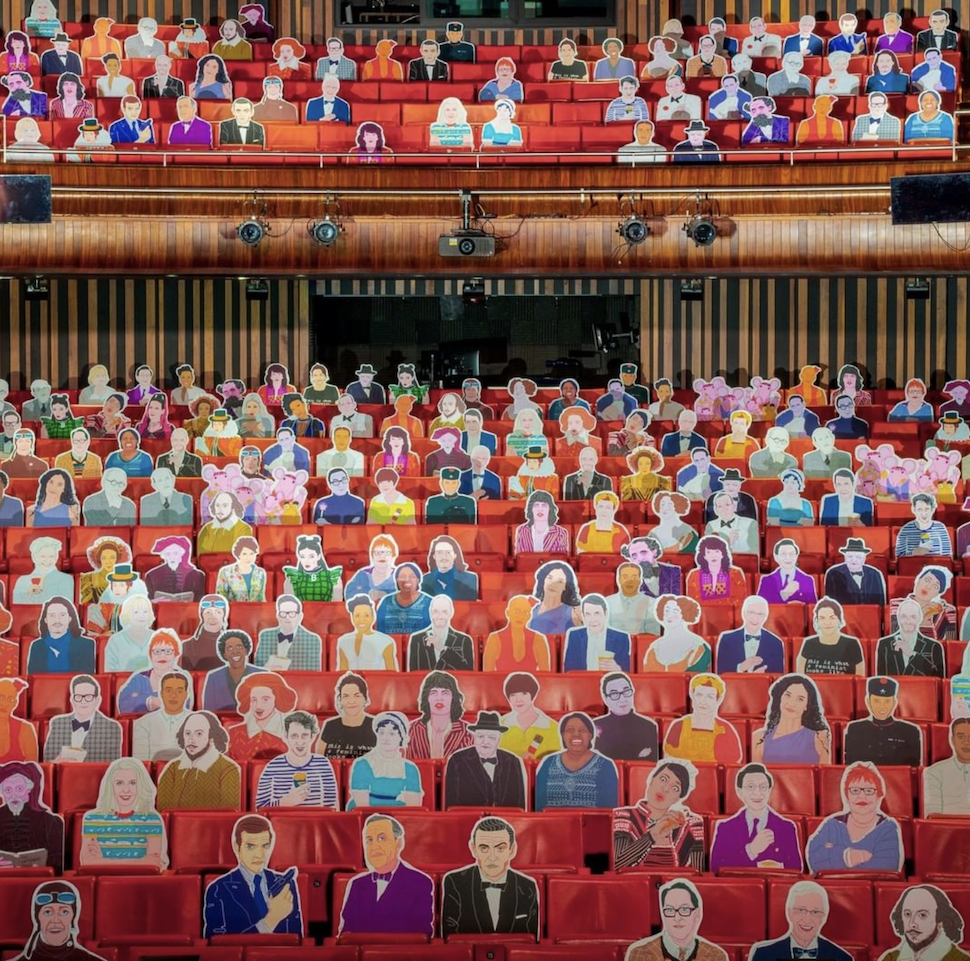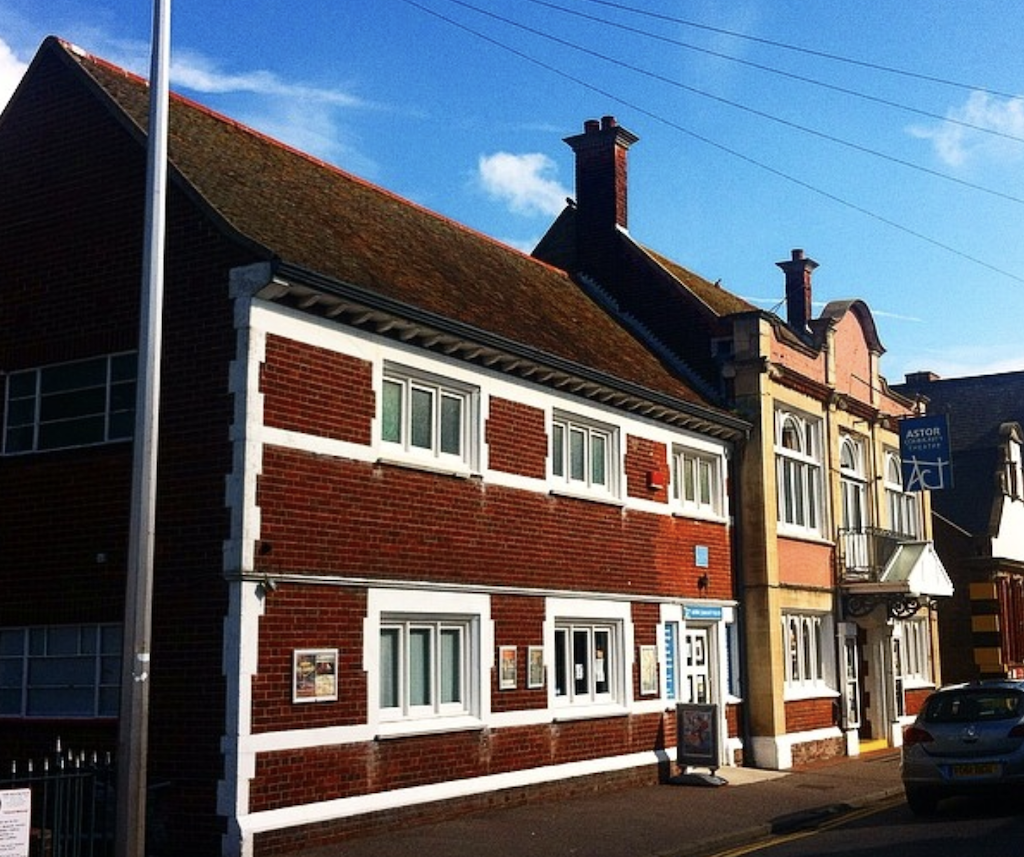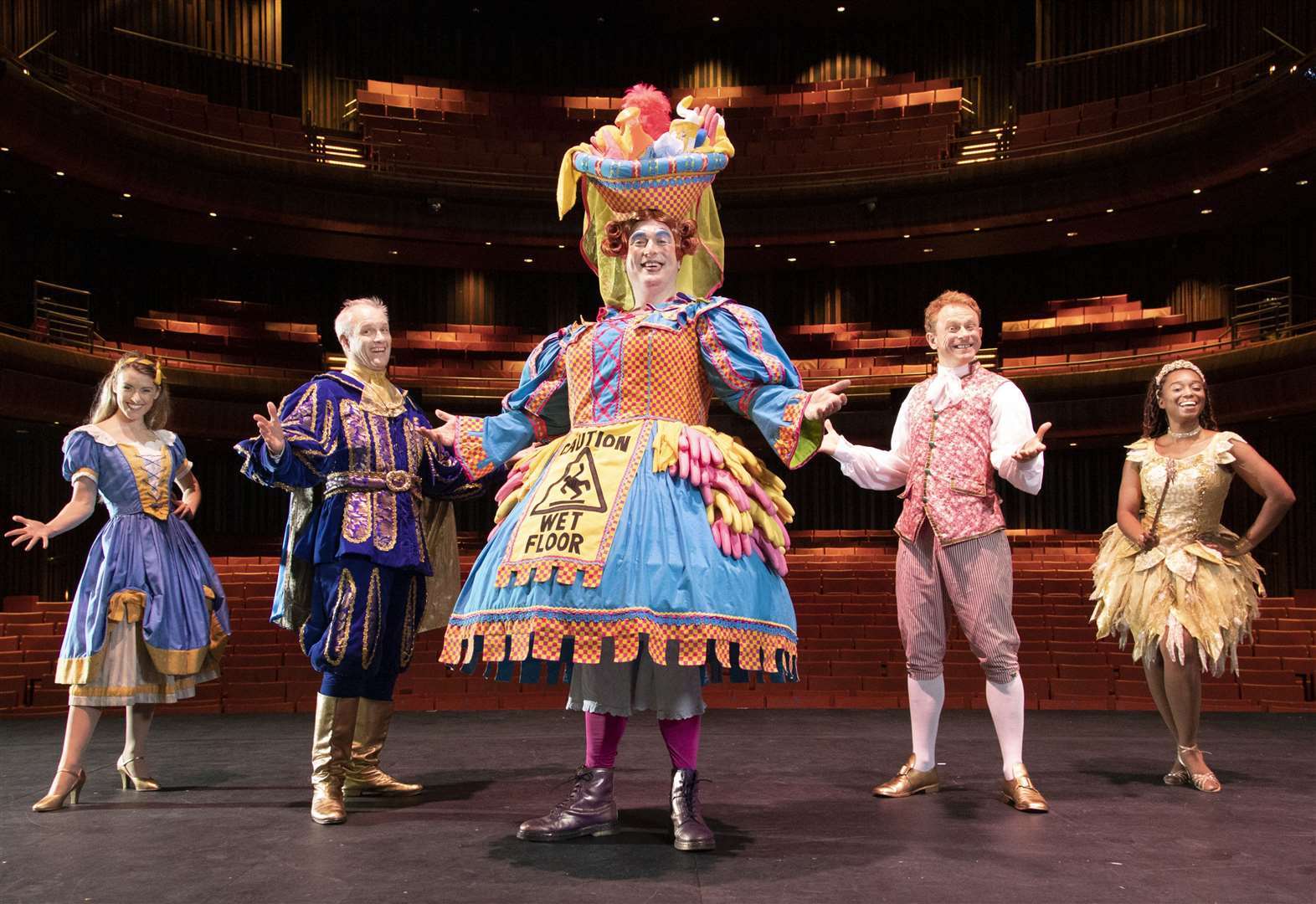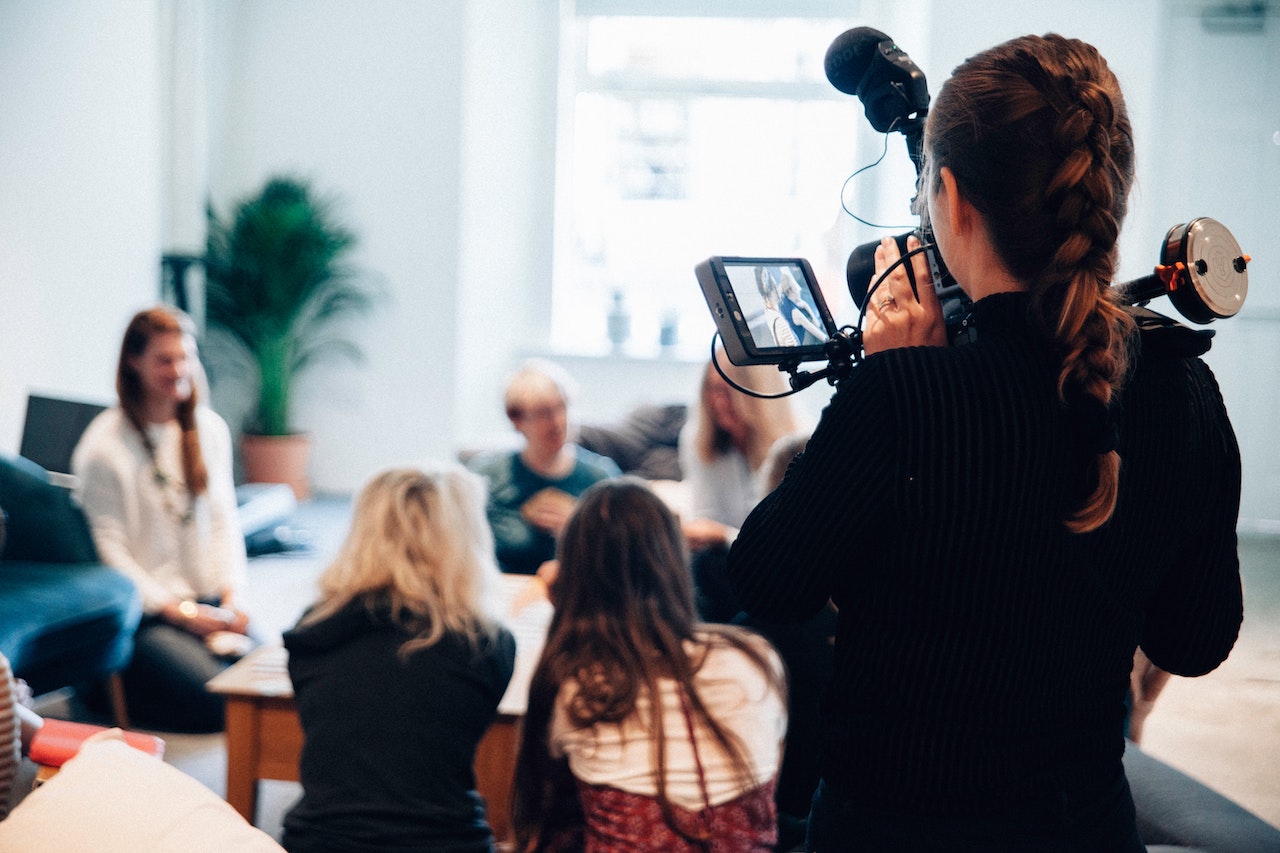How live entertainment in Kent has survived the pandemic – and how it’s helped the public too
24th November 2021
Those in the entertainment industry have worked tirelessly to keep us all in good spirits over the last two years.
Charlotte McCarthy explores how they had to adapt, as well as whether we have finally come to truly appreciate the magic of live entertainment.
It’s 7pm on Thursday night, and Emma walks through the door to the stalls and takes in the view in front of her. A sea of empty red chairs, about to be filled by theatre fans like her from across the county. She and her group take their seats in the front row, and she eagerly waits for their evening of live entertainment to begin. Listening to the cheerful hum of the audience, getting comfortable with her programme and her snacks, she thinks to herself... I’ve missed this.
Like Emma, thousands of people across Kent have finally been able to go to their first live performance since before the pandemic. Sure, they’ve had the option of streaming shows and watching films, but it’s just not been the same as being there and taking it all in.
But do we, the audience, really appreciate what’s happened over the last two years to get us back in those seats again?
It was so emotional when we all realised it was for real this time, and we weren't going to have to reschedule again.
—Becky Startup-Waters
Becky Startup-Waters, marketing officer at The Marlowe Theatre, has seen first-hand how the best-known theatre in the area has had to deal with the pandemic.
She said: “It’s been crazy. From the day we had to close, my job role shifted, along with a lot of other staff. Having been box office trained, I acted as box office staff because that’s where we needed loads more people working.”
The Marlowe had closed its doors to the public completely, but staff were working double-time in order to help their customers. “I was making hundreds of calls to customers, rescheduling tickets and cancelling bookings. We just had to make sure that the public knew exactly what was going on with each show, whether it had been rescheduled to a later date or the production had been cancelled altogether. It was an insane amount of work to do in a short time,” she said.
The senior management staff at the Marlowe had to apply for several grants and bursaries to try and keep the business alive for the indefinite time that they spent closed. “People were working 60-hour weeks, it was intense,” Becky said. This endless rescheduling lasted from March last year until the eventual reopening this summer. They had no real idea of when they’d be able to put on shows safely again, so a huge amount of planning and postponing was needed.
When it came to Christmas 2020, the pantomime needed a lot of last-minute decisions according to the lockdowns. The production company (Evolution Productions) chose to stage a full pantomime called ‘Nurse Nellie Saves Panto’, and the initial plan was to have a socially-distanced audience, with a very limited cast.
The audience would be separated by the unique cut-outs filling most of the seats, created by Whitstable-based portrait artist Ben Dickson.
However, the winter restrictions meant they needed a rethink, as the nation went back into another lockdown in the hope of being able to see family on Christmas Day.
What they decided to do instead was record the show, with only the crew as in-person audience members. This recording was released online, so that the audience could pay for viewing rights and still enjoy their festive theatre experience at home.
Finally, after months of waiting, they were able to reopen this summer. The first time they opened their doors was for Six, the musical based on the wives of Henry VIII. They ran at half-capacity, and filled the gaps with the cut-outs that had been patiently waiting in the seats for their first use.
Reopening was hard to believe considering they’d been teased with the prospect for months and kept having their hopes dashed once again. “We didn’t believe it until it actually happened,” Becky said.
“Because the reopening was about to happen earlier in the year and then got postponed over and over again, we didn’t really process that it would really happen until members of the public actually entered the building. It was so emotional when we all realised it was for real this time, and we weren’t going to have to reschedule again. It was really moving.”
She said that the support from the public had been incredible – when they were forced to close, while they were closed, and then when they reopened. “We were concerned that we’d lose out on revenue because people would be fed up of having to reschedule their bookings, and that people wouldn’t want to come back. But everyone was so lovely, just accepting that they would eventually get to see their show and they didn’t mind bearing with us. And all the comments we received were amazing – we’re so grateful to everyone who stuck by us.”
We had to cancel everything indefinitely from March 20th, 2020. I thought that was it – we were going to go bust.
—James Tillitt
Smaller theatres were hit even harder by lockdown as they weren’t able to run at half-capacity like the Marlowe did, and Deal’s Astor Community Theatre was no exception.
The Astor’s artistic director, James Tillitt, described the entire ordeal as mind-blowing, and said that he wouldn’t believe a word of it had you told him what was going to happen two years ago. He said he was considering retirement at the end of 2019, but as it turned out, the world had another plan in mind for him.
He said that the most turbulent years of his career began just as he’d started thinking about giving it all up. Looking back on the experience, he said: “We had to cancel everything indefinitely from March 20th, 2020. I thought that was it – we were going to go bust.
“Our income stream dried out overnight, no bar, no room rentals, no box office, no anything. And a LOT of bills to pay, minus thousands of pounds in ticket sales. Added to that, I had to make all my staff redundant, so we were really headed towards bankruptcy.”
James credits the support from the people of Deal as what kept the Astor afloat, both financially and emotionally. He said: “I was really quite overwhelmed by the generosity, and all the letters, cards and emails, which said things like ‘Hope everything's going to be okay’, and ‘We really value what the theatre represents’.
“It was really quite emotional at times. After we shut, I put out a GoFundMe page called ‘Save the Astor’, and one gentleman called me and said he would like to make a donation of £10,000 that day. I just burst into tears.”
To date, the page has received over £65,000 in donations.
“We were closed for a year and a half, until we reopened with social distancing rules in place at the start of this summer. But that meant, instead of 175 people in the auditorium, the maximum capacity was 32,” he said.
“This made it completely unviable to do anything with a live group, so we were just showing films and some of the recordings of National Theatre performances. That went very well, as people were very keen to come ‘out’ for the evening.”
James hopes that the power of the theatre will help bring everyone back together after such a long time apart. He said: “I just think that we've been forced to exist apart for the last 18 months, and it's had a massive effect on people's ability to cope generally. And coming together for a shared live experience has a very strong recuperative effect, as people try to find their way of coping with whatever this new normal is going to be.”
When you’re there, you can just switch off and forget about your problems for a couple of hours.
—Frankie McGregor
Regular theatregoers really felt the impact of what we weren’t able to do from March last year. When they would usually enjoy an evening of entertainment as often as possible at their local theatre or further afield, having seen nothing at all for such a long time has been difficult when it is such an important part of their lives. Some of the most eager theatregoers have more than made up for not having been to their special place in far too long, and have booked as many shows as possible since the reopening this summer.
Recent graduate Frankie McGregor, 24, says she’s been to over 20 theatre performances since restrictions were removed. A die-hard fan of musical theatre, she said it’s been make-or-break for her mental health. Having lived in Canterbury for several years, the Marlowe Theatre has been a place of comfort and solace for her.
Having dealt with the stress of university for the last few years, Frankie credits going to the theatre as a way of coping. “I feel like theatre definitely helps with positive mental health, because you can escape from your reality for a couple of hours,” she said.
“You feel like you're not you - you’re a part of the show. As you sit there and watch, you become a queen, or you become a school child again, depending on what the show is.”
“When you’re there, you can just switch off and forget about your problems for a couple of hours,” she said while remembering the first show she saw post-lockdown. She saw Six – not on opening night, but still while it was in the first few shows of its run.
“Going back to the theatre for the first time in 18 months was surreal,” she said. “It wasn’t entirely ‘business as usual’, because we still had to wear masks and be socially distanced, but I actually didn’t mind that because I got to spread out and put my stuff on the seat next to me!”
She also noted that the excitement levels in the room were sky-high. “You could hear the buzz of the audience before the show had started, everyone was just so happy to be back!”
Theatre trips became a tradition for her and her mum, and it reminded her of going to the theatre as a child. Regular theatre trips also cemented the relationship between Frankie and her friends, as the shared experiences brought them closer together and gave them something to remember as a group. Like many others, it was one of the things she missed most during lockdown – a special day at the theatre, making memories with loved ones.
“I remember thinking while we were stuck at home, ‘I could really do with a theatre day right now’, and it was something I made sure we did as soon as possible,” she said.
As a lifelong supporter of the theatre, Frankie noted how she sympathised with those who struggled with employment while theatres were closed.
She said: “I really feel for actors that have had to find work during COVID. After the full lockdown, we were allowed to go back to pubs and stuff, but we couldn’t go back to theatres. A lot of people’s entire careers were at stake based on the level of restriction we had.”
Non-essential shops, pubs and gyms reopened on April 12th, but theatres only opened with very restricted capacity on May 17th. As Frankie said, this meant that a lot of workers got to resume normal employment, but theatre staff – whether it be actors, ushers or any of the other behind-the-scenes staff – couldn’t go back to work as they did before, they still had to wait.
...In pantomime you want to be able to see the audience’s facial expressions, and if you can’t see half of their faces, it just doesn’t feel the same.
—Lloyd Hollett
Actor and comedian Lloyd Hollett has seen the effect on the entertainment industry from the other side of the curtain. As a man of many performing talents, his work takes him from theatre stages, to comedy venues, to cruise ships.
When the first lockdown restrictions were put in place in March 2020, he was on a P&O cruise as per usual – but only for a three-day period. Because nowhere would let them disembark due to the pandemic, he and the rest of the passengers ended up stranded at sea for over a month.
The unpredictable nature of the entertainment industry is hard enough at the best of times. During the eye of pandemic tornado, it was practically impossible. He said: “It was like we were being teased, because I had gigs in the diary for the whole year.
“We were told, ‘We're going back [on tour] next month’, and then it would get to that next month, and then we'd get the phone call, ‘I'm sorry. These gigs are cancelled. We'll carry on next month’. So, then you get all excited for the next month, everyone’s mentally and physically preparing, and then you get told, ‘Sorry, that's cancelled as well.’”
Lloyd (second right in below photo) has made a name for himself in Canterbury, as he has appeared in the annual Marlowe Christmas pantomime as one of the main cast members for the last decade. Last year was to be his 10th and final run in Canterbury (though he hasn’t ruled out a return), and it was very different to the standard panto.
‘Nurse Nellie Saves Panto’ was a unique experience for both the audience and the five actors that made up the full cast. “We only performed it twice on one day for the recording and that was it, with about 20 of the theatre staff as the in-person audience,” he said.
“They all had to have masks on in the audience. It was a bit sad really, because in pantomime you want to be able to see the audience’s facial expressions, and if you can’t see half of their faces, it just doesn’t feel the same.”
That’s the special part of pantomime, that audience participation. You don’t get that by watching a show at home.
—Kirsty Woodhams
Kirsty Woodhams, 30, was one of the thousands of people booked to see Jack and the Beanstalk at the Marlowe during its Christmas run last year. Instead, she and her husband watched the recording of ‘Nurse Nellie Saves Panto’ on the TV at home.
She said: “We were actually meant to be going to the Marlowe to celebrate my 30th birthday, so missing that was a bit sad. Having the streamed panto meant we at least had something to enjoy to get us into a Christmassy mood, because we usually go every year with work. Not having anything from the Marlowe at all would have made us feel like something was missing.”
As a regular theatregoer at the Marlowe pre-pandemic, Kirsty has seen dozens of shows over the years. As a key worker, she decided it wasn’t safe to start going back to the theatre when it reopened, and hasn’t been to a show yet. “I feel a responsibility to protect the patients I see by keeping myself as safe as possible, and although it’s a shame to miss certain events, it’s for the best in the long run,” she said.
“I’ve definitely missed going to the Marlowe, because it’s always a special event to get dressed up for, and we love a musical in our family. I love that it’s an interactive show – that’s the special part of pantomime, that audience participation. You don’t get that by watching a show at home. ‘Nurse Nellie’ was still good, but it just wasn’t as special as a live performance.”
This Christmas, Kirsty will finally be going back to the Marlowe to see the postponed run of Jack and the Beanstalk. "I'm still a bit apprehensive, but I'm excited because it's been so long since we've been to the theatre!"
Lloyd said that since he has been entertaining again, the audiences have seemed more appreciative compared to pre-pandemic crowds.
He said: “I recently did a gig for the Armed Forces – it was 300 people between 18 and 80 years old. They were all quite drunk by the time I went on[stage], and I had to do an hour of stand-up comedy. There’s always a fear with drunk audiences that heckling is going to be a nightmare, but for the whole hour you could have heard a pin drop between the laughs. They all said afterwards, ‘We’ve not had a night out for nearly two years.’ If that gig happened pre-pandemic, it would have been a harder night for me as the performer.”
Appreciative audiences were also key on the cruises he entertained on, as they could not reach full capacity because of the restrictions. “I’ve done about nine cruises since June this year, and even though they weren’t full – some of them had only 40-50% capacity – they were some of the best audiences,” he said. “Sometimes it’s been said, ‘I need a full theatre to have a good night [as a performer]’, but actually, that’s not always the case. It’s definitely quality over quantity.”
Lloyd was also involved in outdoor entertainment while the theatre doors were closed. Birchington’s Quex Park played host to various outdoor activities for children to enjoy, which Lloyd got involved in. He wrote all the scripts and acted in them himself, multiple times across the last 18 months.
He said: “The first was an Alice in Wonderland themed maze, where I was dressed as the Mad Hatter on one TV screen and gave the kids some tasks and activities to do, and when they got around to the next screen, there I was again as the Wicked Queen!”
It was a rare experience for Lloyd as it gave him the opportunity to act, write and produce, all at once. He said: “It was a big effort, but I was lucky to have the opportunity.”
Other actors haven’t been quite as lucky. Those with serious health conditions have suffered as they have had to stay at home (known as ‘shielding’) while physically healthy actors continued attending auditions and getting jobs.
Everyone else looked like they’d forgotten there was a deadly virus going around, but I was on edge every time someone cleared their throat.
—Lily Mummery
Lily Mummery, 22, had to put her entire career on hold in order to protect her health. Because she suffers with asthma, going to auditions and doing jobbing work was still too risky for her after full lockdown was lifted.
She said: “Everyone else felt safe enough to go back to auditions and carry on with their lives, but I had to sit on the sidelines because if I caught COVID it could have put me in serious danger.”
In December last year, she decided to go to an audition and use public transport, but felt scared as COVID was still prevalent (though not as bad as in previous months) and the possibility of becoming ill was still high.
“I don’t regret going [to the audition], but it was frightening,” she said, as she recalled being on public transport and feeling very aware of the people around her. “Everyone else looked like they’d forgotten there was a deadly virus going around, but I was on edge every time someone cleared their throat.”
Lily has since had both doses of the COVID-19 vaccine, and feels much more confident being out in public. She said: “Now I’m double-vaccinated, I feel a lot safer. I have that extra layer of protection when I go to an audition, and I don’t have to be afraid when I get on public transport.”
The pandemic has decimated the entertainment industry for nearly two years, and for some it meant the end. All in all, the time we spent without the magic of live entertainment has truly proven that it’s one of the most special experiences we can share with others, and we shouldn’t take it for granted now that we have it back in our lives again.



